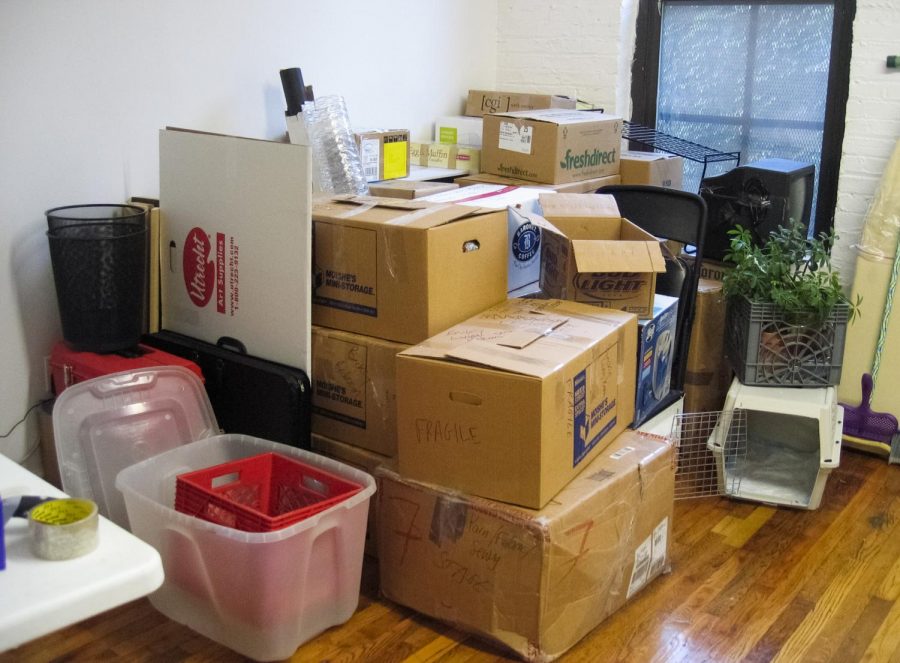When renting a home in the U.S., one of the first questions many tenants ask is “what is a security deposit?”. A security deposit is a standard part of most rental agreements, yet its rules and purpose are often misunderstood. In this guide, we’ll break down the security deposit definition, explain how security deposit works, and highlight the security deposit purpose for both landlords and tenants. You’ll also learn how the security deposit refund process works and what kinds of security deposit deductions may apply when moving out.
If you’ve ever rented an apartment or house in the U.S., you’ve likely encountered the term security deposit. It’s one of the first things a landlord will ask for when you sign a lease. But many renters are unclear about the security deposit purpose, how it works, and what their rights are when it comes time to move out. This guide explains the basics, with real examples and tips to make sure you don’t lose money unnecessarily.

Security Deposit Definition – What Is a Security Deposit?
In simple terms, a security deposit is money a tenant pays to a landlord at the start of a lease. Think of it as a safety net: the landlord holds this money until the end of the rental term. If you take care of the place and pay your rent, you’ll get it back.
For landlords, it’s insurance against unpaid bills or serious damage. For tenants, it’s refundable as long as the lease conditions are met. In most cases, the deposit equals one month’s rent, though some landlords may ask for more, depending on state law. Importantly, the deposit isn’t the same thing as paying your last month’s rent in advance, nor is it a non-refundable fee like an application charge or a pet fee.
Example: If your rent is $1,200 per month, you’ll probably be asked for a $1,200 deposit before you move in. At the end of your lease, if the apartment is in good condition, you’ll get that full amount back.
How Security Deposit Works
So, how does a security deposit work in practice? It begins the day you sign your lease. The deposit is paid up front and held by your landlord—sometimes in a separate bank account, depending on the law in your state. In some places, landlords even have to pay you a small amount of interest on the money while they’re holding it.
When you move out, the landlord will do an inspection. If everything is in order, you should receive a security deposit refund. If not, the landlord can make security deposit deductions. These deductions must usually be explained in writing, in what’s called an itemized statement.
Example: James moved out of his apartment and forgot to pay the last $90 electricity bill. The landlord deducted $90 from his deposit and returned the rest, with a written note showing the charge.

Normal Wear and Tear vs. Damage
One of the biggest questions tenants have is what landlords are actually allowed to charge for. The law makes a clear distinction between normal wear and tear and actual damage.
Normal wear and tear includes things like faded paint, a carpet that’s worn down after several years, or tiny nail holes from hanging pictures. These are the expected results of living in a home and cannot be deducted from your deposit.
Damage, on the other hand, goes beyond normal use. A large wine stain on the carpet, a broken appliance, or a hole punched in the wall are all examples of damage. In these cases, a landlord has the right to use part of your deposit for repairs.
Example: After three years in a unit, Sarah’s carpet was a little worn—that counted as normal wear. But her roommate also left a cigarette burn on the bedroom carpet. The landlord deducted $150 from the deposit to replace that section.
Tenant Rights and Security Deposit Rules
Every state has its own laws, but there are general protections known as tenant rights security deposit rules. These laws set limits on how much a landlord can charge—often no more than one or two months’ rent. They also require landlords to provide a written breakdown if they keep any part of your deposit.
Another important rule is the timeline for refunds. In most states, landlords must return your deposit (or explain deductions) within 14 to 30 days after you move out. If they miss the deadline, you may even be entitled to extra compensation.
Example: A tenant in Illinois moved out and didn’t hear back from their landlord for over 60 days. When they took the case to small claims court, the judge ordered the landlord to return the full deposit plus additional damages for failing to follow the law.
What If Your Security Deposit Isn’t Returned?
Unfortunately, not all landlords follow the rules. If your security deposit refund doesn’t come back as it should, there are steps you can take.
First, always ask politely in writing. A short, clear letter or email goes a long way. Here’s a simple template:
Subject: Request for Return of Security Deposit
Dear Landlord (’s Name),
I moved out of (address) on (MM/DD/YYYY). According to our lease and state law, I am requesting the return of my security deposit in the amount of $(amount).
Please send the deposit or an itemized list of deductions within the required timeframe.
Thank you, (Your Full Name)
If the landlord still refuses, gather your evidence: photos of the unit, a copy of your lease, and any emails or letters. With this documentation, you can take the matter to small claims court, where many tenants win when landlords can’t justify their deductions.
Example: One renter kept detailed “move-in” and “move-out” photos. When the landlord tried to withhold $1,000 for carpet replacement, the tenant showed the court that the carpet had been old and stained from the start. The judge ordered the landlord to refund the full deposit.
Common Questions About Security Deposits
Even experienced renters often get confused about the rules of security deposits. Below is a quick-reference table that answers the most frequent questions tenants have about their rights, refunds, and deductions. This section is especially useful if you are wondering how does a security deposit work in practice and what protections exist under tenant rights security deposit laws.
| Question | Answer |
|---|---|
| Can I use my deposit for the last month’s rent? | Usually no, unless your lease agreement specifically allows it. Otherwise, the security deposit purpose is separate from rent. |
| Do landlords have to pay interest on deposits? | In some states, yes. Some laws require landlords to keep deposits in an interest-bearing account. |
| Can landlords keep deposits for cleaning? | Only if the unit is left excessively dirty. They cannot deduct for normal dust or light cleaning. |
| What if deductions aren’t explained? | You have the right to a written itemized statement of security deposit deductions. |
| How long does a landlord have to return the deposit? | It varies by state, but typically 14–30 days. This is called the security deposit refund period. |
| What counts as normal wear and tear? | Small nail holes, faded paint, or minor carpet wear are normal and should not reduce your deposit. |
| Can a landlord keep the deposit for unpaid utilities? | Yes, if the lease makes the tenant responsible and bills remain unpaid. |
| Is there a limit to the security deposit amount? | Many states limit it to 1–2 months’ rent, but laws differ. |
| What should I do if my deposit isn’t returned? | Send a written demand letter, keep records, and if needed, file a claim in small claims court. |
| Can a security deposit be non-refundable? | Generally no. A true security deposit definition requires that it be refundable, unlike non-refundable fees. |
A security deposit can feel like a big expense when you first move in, but remember—it’s your money, not the landlord’s. The key is understanding the security deposit definition, knowing how security deposit works, and protecting your rights as a tenant.
To maximize your chance of a full refund, always pay rent on time, take care of the property, and document its condition when you move in and out. By doing so, you’ll avoid unnecessary disputes and make sure you walk away with your money intact at the end of your lease.
By William Anderson
Profit Dwelling
